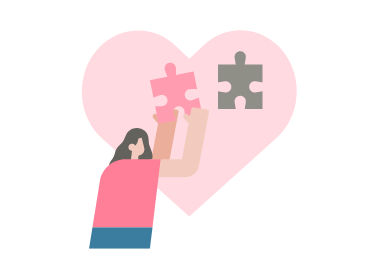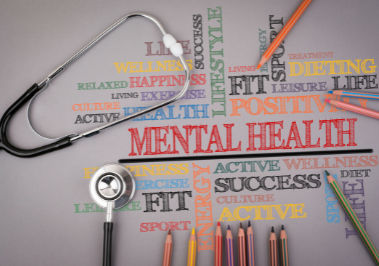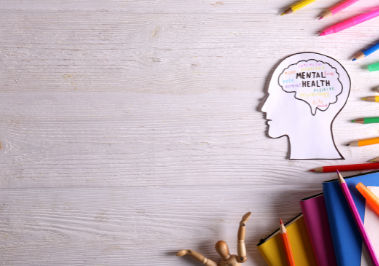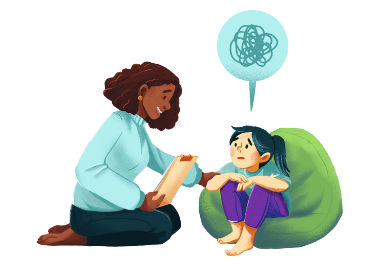
Mental Health Awareness Week 2019 – Body Image - 'The Big Problem'
Mental Health Awareness Week 2019 – Body Image - 'The Big Problem'
Youth Panel Blog
Rosie McDonald – Hill 
On the first day of the forum – still giddy from the delight of gaudi’s breath taking La Sagrada Familia – we participated in the first icebreaker which involved us spreading ourselves across the room to match our geographical locations, transparently highlighting how we had all travelled far and wide to reach the forum. Yet, despite our distances and differences, we had all come for the same reason: mental health is a universal issue. Next up, we gathered in a circle where we would each state our name and an accompanying action to identify us. However, before long, we were all crumbling into laughter at the frankly ridiculous gestures. My personal favourite: Azjerbaijani representative, Olphan’s action, that I can only describe as climbing up the rigging of a ship.
Following this was the exchange of country experiences and presentation of country projects. Azjerbaijan focussed on how family pressures and exam stress can have disastrous consequences for mental health, whilst Georgia reflected on the impact of bullying. Cyprus used a clever exercise involving a paper piano scale to show the far-reaching impact of mental health, with the reps then discussing the crippling stereotypes surrounding mental health that exist in their country and linking this to the unfortunate current requirement for parental consent to access mental health services whilst under 18, with parents often showing reluctance to provide consent, due to rigid stereotypes. A similar requirement exists in Italy. Although unfortunately not present, we watched the Belgian youth panel’s beautifully made and heart wrenching video on the unrelenting demons of poor mental health, in which a girl wrote a poignant letter to her past bullies. It was as though we were in Cannes!
The Basque country reps opened with an engaging, interactive exercise to illustrate common misconceptions surrounding mental health, while Scotland reinforced this message by calling for awareness campaigns, and widespread information on young people’s mental health rights, as well as the need for national standards in the provision of mental healthcare across the country. Malta suggested obligatory courses for parents, alongside sessions and workshops for students in schools. Italy recommended the use of celebrity testimonies on social media and echoed the need for awareness raising, as young people often don’t know who to talk to or which services they can access.
Nearly everyone recognised the need for specialist psychologists in schools, with Cyprus illustrating how schools are not professionally equipped and need better training. Catalonia suggested the exploration of alternative non-medicated avenues of treatment, as well as intrafamily and relationship counselling. Additionally, they considered how often mental health issues are detected too late, and emphasised the need for early intervention.
In our own presentation on mental health in Northern Ireland, we addressed how the interlinking factors of poverty, transgenerational trauma, school pressures to succeed and lack of a support network, among others, culminate in damage to mental health. We briefly spoke of NICCY’s Speak Your Mind campaign, which sought to collect the mental health experiences of young people in NI (the findings of which are due to be published in September 2018) and the Elephant in the Room project, who also looked at the mental health of young people in NI (and whose findings are due to be published in October 2018). The three key recommendations for the government that we presented were: on showing us how to be proactive in promoting good mental health, on dissolving stigma (of course with the obligatory ‘dissolve’ PowerPoint transition), and the necessity of effective mental health services when and where we need them. To name but a few points, we reflected on: the preference for community based mental health services; the current inadequacy of A&E for young people in crisis; the need for greater collaboration across healthcare services and provision of long term and holistic care, and the dire need for greater funding.
Interestingly, there was a great overlap and similarity in the points that each country’s representative raised, with each of us adding a different coloured thread to the tapestry of mental health for young people across Europe. To me, this further highlights the importance of intercountry cooperation to tackle largely the same universal issues surrounding mental health, even as we stare into the bleak face of Brexit.
Following the presentations, we all arranged ourselves in a circle in order to contribute 10 seconds of drawing to a portrait of each of our fellow representatives, swapping the sheets until the artwork was complete. These collective portraits formed hilariously ‘interesting’ artwork capturing the hotch potch of differing perceptions, all coming together for a unified aim and in many ways echoing the purpose of the forum. To round of the day, a local musical ensemble – Les Macedonia – led us in powerful and moving rendition of their song, Inclusive World, which contained the simple but weighty message: ‘We are all different. / We are all unique. We all have the same Rights’. As we all joined in and our voices melded in harmony, it formed the perfect end to a day of sharing and collaboration!

Mental Health Awareness Week 2019 – Body Image - 'The Big Problem'
Youth Panel Blog
Mental Health Awareness Week 2019 – Body Image - 'Mind Over Muscle'
Youth Panel Blog
Mental Health Awareness Week 2019 – Body Image - 'Gender expectations'
Youth Panel Blog